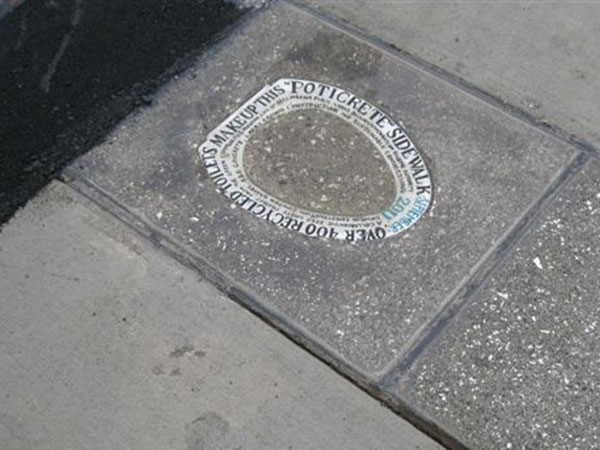Old Toilets Put City on Greenroads Path

Get the world’s most fascinating discoveries delivered straight to your inbox.
You are now subscribed
Your newsletter sign-up was successful
Want to add more newsletters?

Delivered Daily
Daily Newsletter
Sign up for the latest discoveries, groundbreaking research and fascinating breakthroughs that impact you and the wider world direct to your inbox.

Once a week
Life's Little Mysteries
Feed your curiosity with an exclusive mystery every week, solved with science and delivered direct to your inbox before it's seen anywhere else.

Once a week
How It Works
Sign up to our free science & technology newsletter for your weekly fix of fascinating articles, quick quizzes, amazing images, and more

Delivered daily
Space.com Newsletter
Breaking space news, the latest updates on rocket launches, skywatching events and more!

Once a month
Watch This Space
Sign up to our monthly entertainment newsletter to keep up with all our coverage of the latest sci-fi and space movies, tv shows, games and books.

Once a week
Night Sky This Week
Discover this week's must-see night sky events, moon phases, and stunning astrophotos. Sign up for our skywatching newsletter and explore the universe with us!
Join the club
Get full access to premium articles, exclusive features and a growing list of member rewards.
What do you do with 5 tons of old toilets? The city of Bellingham, Wash., found a creative (and sustainable) answer: Make sidewalk.
A section of a sidewalk installed as part of a road improvement project replaces conventional concrete with so-called "poticrete," which contains crushed porcelain instead of gravel.
The pieces of old toilets, crushed into three-quarter inch (1.9-centimeter) pieces, replaces about one dump-truck load of gravel, which would otherwise come out of a hillside somewhere, and saves about 5 tons of material — the toilets — from a landfill, according to project engineer Freeman Anthony.
When crushed up, the porcelain looks and performs like rocks, Anthony told LiveScience. [Photos: Making of a Green Road]
The city used the poticrete in a small part of sidewalk in the the half-mile (0.8-kilometer) Meador Kansas Ellis Trail project in Bellingham. The project, which improved sidewalk and road along an existing corridor, is the first roadway construction project to earn a Greenroads certification. Greenroads is an independentrating system developed at the University of Washington to promote sustainable roadway construction, similar to LEED certification for environmentally friendly buildings.
The project, which was completed at the end of the year, also made use of about 80 tons of crushed, recycled concrete, and about 30 percent of asphalt laid down was recycled material. Porous concrete was included to reduce runoff, low-energy LED lights were added to reduce electricity use, and the project itself improved pedestrian and bicycle access.
The toilets came from the Bellingham Housing Authority, which had received a federal grant to replace its old toilets with more water-efficient, low-flow toilets. A local nonprofit, Sustainable Connections, helped the housing authority secure the grant, and the nonprofit called Anthony with the suggestion that the city make use of the porcelain.
Get the world’s most fascinating discoveries delivered straight to your inbox.
The project's contractor, Larry Brown Construction Inc., installed the poticrete. The recycled materials used cost slightly less than conventional ones, Anthony said.
"The long and short of it is, there is a lot of useful material out there that can be used in public construction projects," he said.
You can follow Live Science senior writer Wynne Parry on Twitter @Wynne_Parry. Follow Live Science for the latest in science news and discoveries on Twitter @livescience and on Facebook.
 Live Science Plus
Live Science Plus











